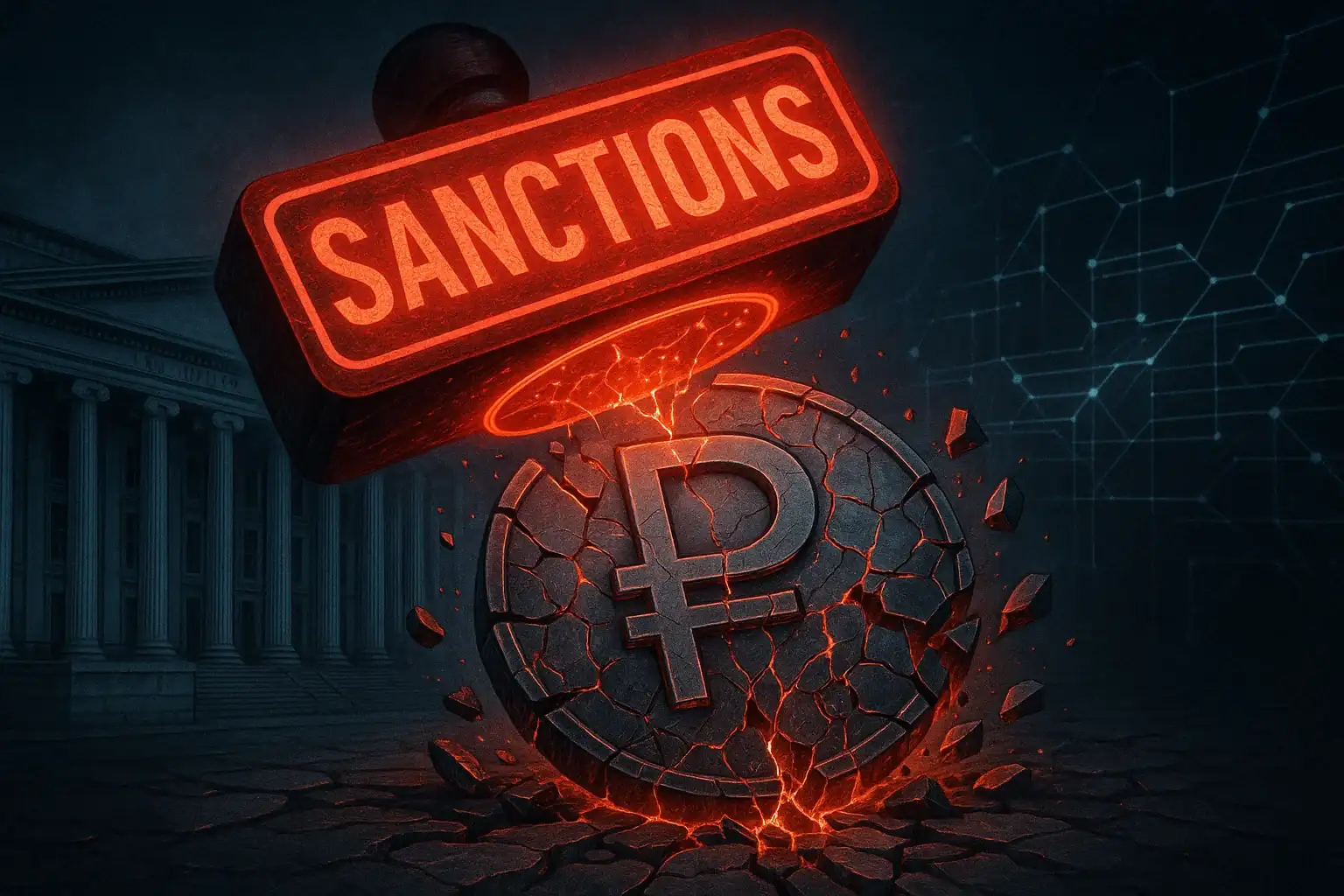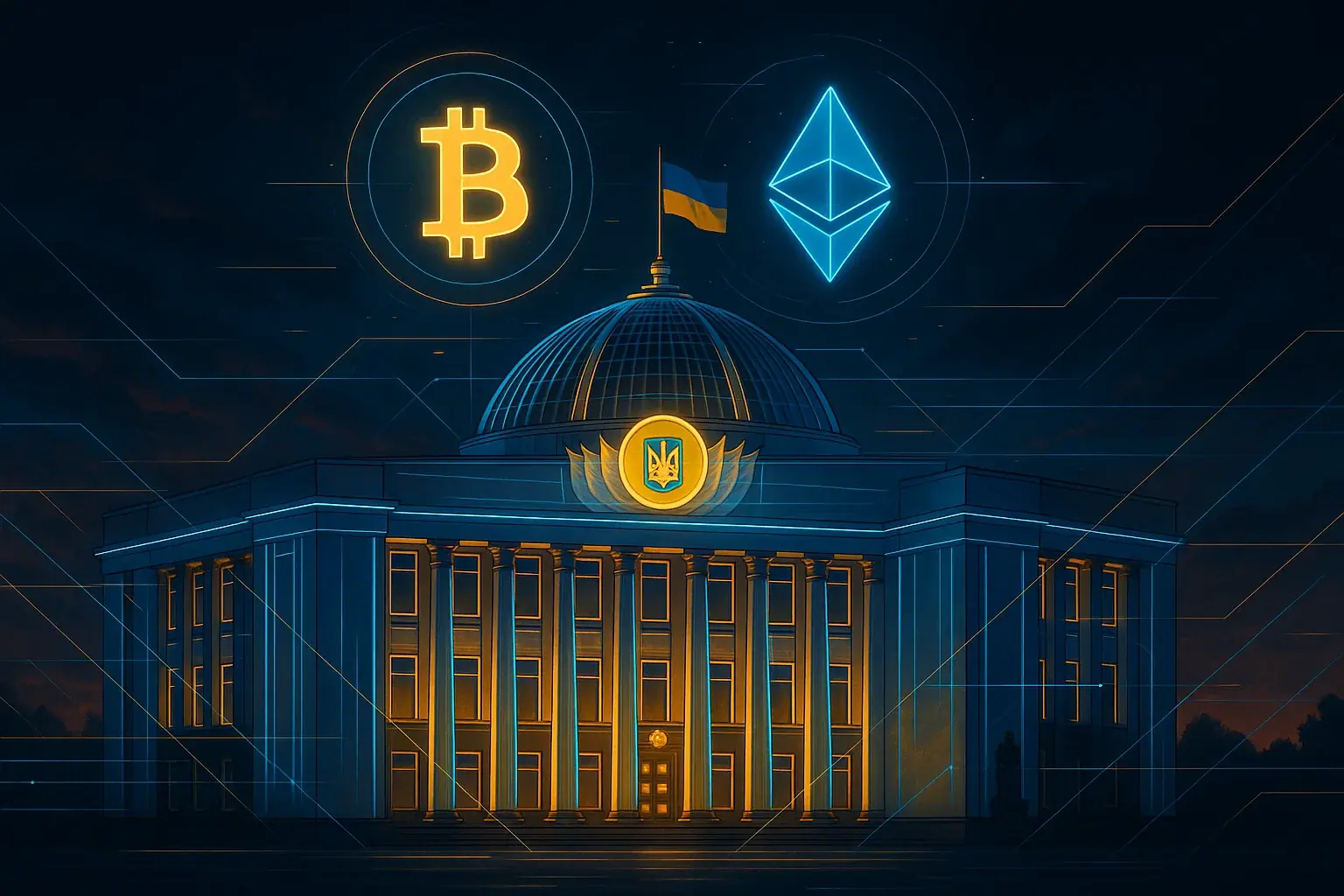The US Treasury Department's Office of Foreign Assets Control (OFAC) on Monday placed the Russian ruble-linked stablecoin A7A5 on its sanctions list in an attempt to block its use.
In addition to the stablecoin itself, OFAC also sanctioned its issuer and developer, A7 LLC, by placing it on the list of Specially Designated Nationals (SDN). The announcement was made on 14 August 2025.
The US sanctions against the ruble-linked stablecoin follow similar measures taken by the UK in May and the European Union in July this year. These actions are part of a global campaign to prevent Russia from using digital currencies to circumvent financial sanctions.
The price of the token dropped 13 per cent from $0.0124 to $0.0105 after the announcement.
No knock-on effect on other stablecoins
Network transaction data confirmed that Tether (USDT) is widely used within the network. However, the world's largest stablecoin has not been adversely affected so far by the action against the Russian stablecoin.
A7A5 started trading in Kyrgyzstan in 2025 and quickly became the most important stablecoin in roubles. According to Elliptic, an on-chain analytics company, the stablecoin has recorded $41.2 billion in transactions since its launch, with average daily volumes exceeding 1 billion and a market capitalisation of 521 million.
Russian state-owned bank Promsvyazbank (PSB), already on the OFAC sanctions list, is co-owner of the project along with A7 LLC, which developed the token. A7A5's issuer, Kyrgyzstan-based Old Vector LLC, was also penalised. The token is active on the TRON and Ethereum blockchains, with liquidity coming mainly from Russian-linked exchanges such as Meer and Grinex.
The cryptocurrency is also linked to Moldovan businessman Ilan Shor, who has been indicted in the past for fraud and election interference.
Suppression of Garantex
The rapid growth of A7A5 followed the US crackdown on Garantex, a cryptocurrency exchange blacklisted for facilitating illicit transactions in March 2025. The platform's website was seized by the US and authorities froze $26 million in Tether (USDT).
With Garantex effectively shut down, many users turned to A7A5 as a seemingly less risky alternative. Grinex, considered by many to be the heir to Garantex, has become one of the leading token exchange markets.
OFAC also sanctioned Garantex co-founder Sergey Mendeleev, along with other entities including Exved, a cross-border payments platform for Russian importers and exporters, and Indefi Smartbank, which had provided services to Exved and Grinex. According to reports, Exved allegedly used USDT to conceal the Russian origins of the platform.
The sanctions represent a further escalation in the US clampdown on the digital currency ecosystem, aimed at closing the last loopholes in the global financial system. A7A5 plummeted by more than a third on the day, but there are no knock-on effects on other stablecoins at the moment.








